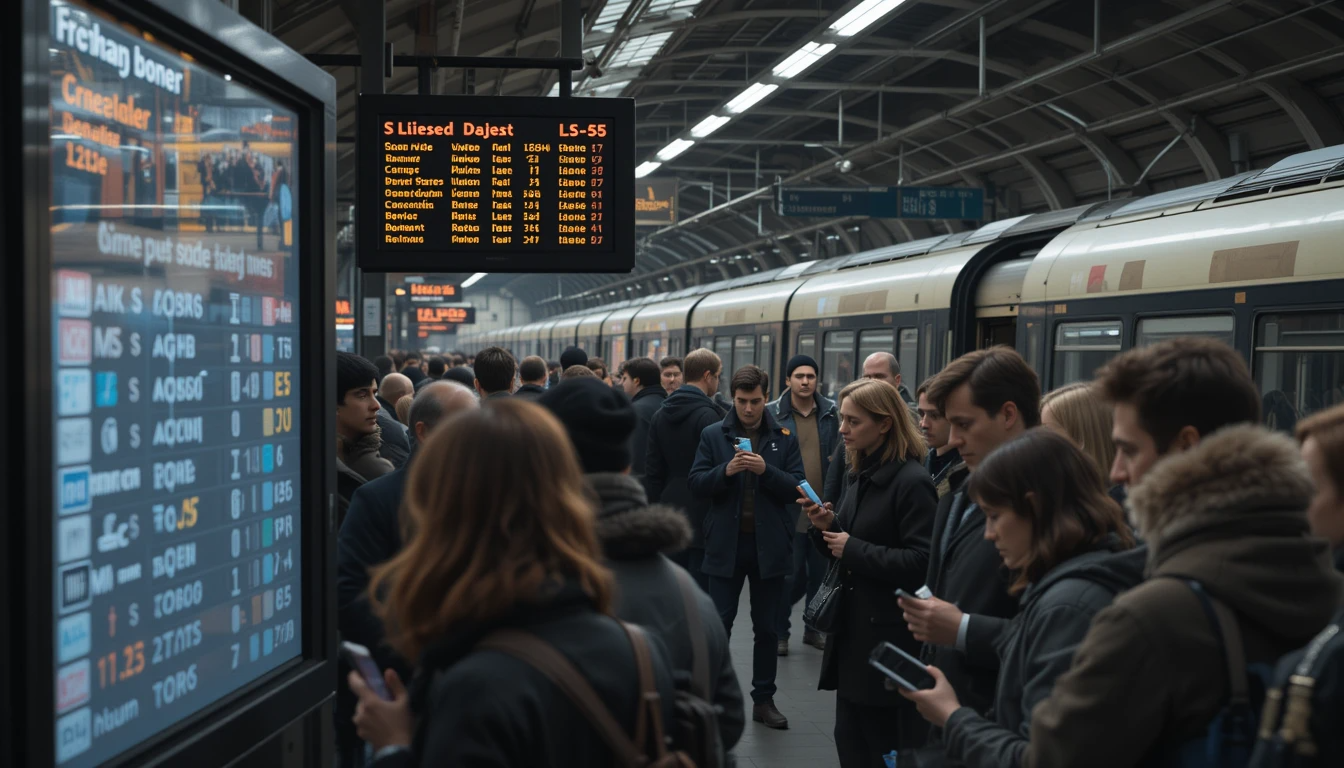
Feb 27, Thursday Brussels: The nine-day rail strike in Belgium, which began on February 21 at 22:00, is set to conclude on Sunday, March 2, at 22:00. While the disruptions are gradually easing, the impact on commuters remains significant. On Thursday, February 27, the alternative train service mirrored Wednesday’s operations, with half of the usual Inter-City (IC) trains running.
The strike, organized by two smaller railway unions, protests several federal government measures, including the increased retirement age for train drivers and conductors, the closure of small train stations, and potential cuts to bonuses for night and Sunday work. The industrial action has caused widespread inconvenience, with overcrowded trains and traffic jams marking the start of the workweek. However, the situation improved slightly on Wednesday as more trains resumed operations.
Thursday’s Train Services
On Thursday, the alternative service included:
- IC Trains: One in two IC trains operated, connecting major cities and stopping only at key stations. This marked an improvement from Monday and Tuesday when only two in five IC trains ran.
- S and L Trains: Approximately 40% of suburban (S) and local (L) trains were operational, up from one in three on Tuesday. S trains serve major cities and their surroundings, stopping at most stations, while L trains connect major cities but halt at every station en route.
- P Trains: Peak (P) trains, which operate during rush hours, remained largely unavailable, as was the case earlier in the week.
The National Railway Company of Belgium (SNCB) continues to urge passengers to check its website or app for daily updates on train schedules.
Friday’s Outlook
On Friday, signaling staff, Infrabel employees, and train drivers will join the strike. The service will resemble Wednesday’s, with half of IC trains, around 40% of S and L trains, and no P trains running. However, the partial closure of the Infrabel signal box in Namur from 14:00 to 22:00 will severely disrupt train traffic in Luxembourg province, much of Namur province, and eastern Walloon Brabant, particularly between Ottignies and Brussels. SNCB has adjusted some routes to mitigate the impact.
Weekend Expectations
On Saturday, signaling staff, Infrabel employees, and train attendants will strike. On Sunday, March 2, individual staff members will decide whether to participate. During the first weekend of the strike, disruptions were slightly less severe. The strike will officially end at 22:00 on Sunday.
Federal Mobility Minister Jean-Luc Crucke has initiated talks with major rail unions, including ACV-Transcom/CSC and ACOD Spoor, to address the grievances. The process, which involves regular meetings every two weeks, is expected to take several months. This could potentially freeze further strike actions planned from March to July.
While the end of the strike brings hope for normalcy, the ongoing negotiations will be crucial in determining the future of Belgium’s rail services. For now, passengers are advised to plan their journeys carefully and stay updated on the latest travel information.
Get more News Headlines On Our Social Platforms And Do Follow.




